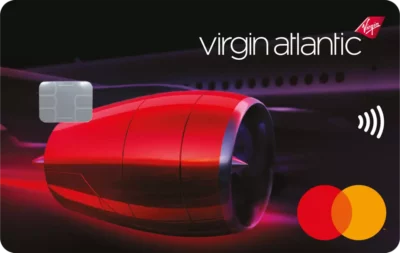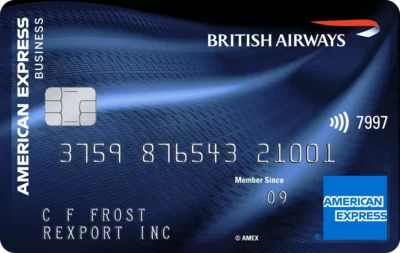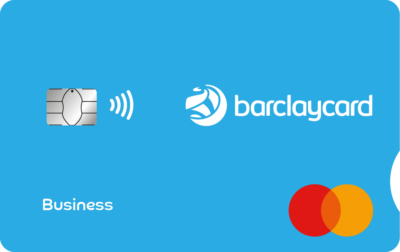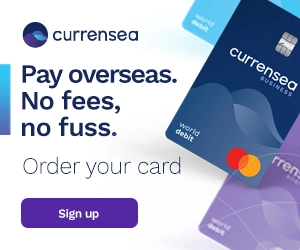Why the EU is planning to take away your Visa and Mastercard reward cards
Links on Head for Points may support the site by paying a commission. See here for all partner links.
This is a guest post, written by Andrew Seftel (although the sensationalist headline is mine!) to whom I am grateful. You may recognise his name from the comments pages of Head for Points. His background makes him the ideal person to explain why the potentially dull subject of credit card interchange fees will lead to big changes in how you earn your miles over the next few years. Over to Andrew ….
There’s a change coming through the credit card industry that will make it harder to earn miles using cards: card issuers will get less revenue from each purchase you make. This is what funds the rewards you earn, which means that it’ll be harder to earn using cards.
Despite the size of this change, there has been very little discussion about it in the usual places (although some of HfP’s more City-minded readers might have spotted an article on this very topic on the front page of the FT two weeks ago). Here’s a quick briefing on what’s happening.

A primer on interchange
Every time you make a purchase on a debit or credit card, the merchant is charged a cut of the transaction. Some of this will be a charge from the merchant’s bank, the rest will be an ‘interchange’ fee of about 0.7-1.2%, set by Visa or MasterCard that is mostly paid to the card issuer.
This payment helps to cover the costs of issuing a card (e.g. physical cards, statements, fraud) and is the reason why credit card companies are happy to have you even if you don’t pay any interest or fees.
Crucially for HFP readers, card issuers realised that they could give some of this cut back to consumers, for example, as cashback or points. This has led to the situation that we currently enjoy: being able to earn large amounts of cash, miles and points by using the right credit cards.
What’s changing?
For almost as long as this arrangement has been in place, merchants have hated it! They see it as an unnecessary tax on their revenues, dictated to them by an oligopoly of card networks. Various entities have spent the past couple decades in courtrooms and regulatory commissions battling Visa and MasterCard (although not American Express) and their fees.
This slow and complicated tango of proposals and appeals looks finally to be drawing to a conclusion. In the UK, it looks like card interchange will be capped at 0.3%. Regulators will be hoping that the savings from these reduced fees will be passed onto consumers.
What does this mean for me?
- Card issuers have been anticipating these changes for a while. As a result, new reward card products have become less lucrative over the past few years. Expect that Visa / MasterCard offerings will continue to become less numerous and less generous.
- Existing cards should be unaffected for the time being, but at some point the issuer will start losing money on every purchase and consider devaluing on-going earnings. Think carefully about closing good card accounts (e.g. BMI cards). You probably won’t be able to get an equivalent replacement.
- The HfP demographic (who I presume generally pays off their cards in full every month) will become much less profitable for card issuers. In addition to lower rewards rates, sign-up bonuses will probably become less generous and we may also see annual fees becoming more commonplace. Alternatively, more strings may be attached, such as having a particular current account to be eligible for a card.
- Commercial cards look safe for the time being. Cards targeted at small businesses may be a bright spot for the self-employed.
But I mostly spend on Amex anyway
If you’ve given rewards cards even the most cursory glance, you’ll have seen that cards on the American Express network offer the best rewards. This is because merchants pay a higher fee to accept the card, giving them more margin to share with the cardholder.
You might therefore think that this isn’t such a big deal, but you’re not completely safe:
- Not everywhere takes Amex, so you’ll be getting less back at those places
- Only a few companies issue Amex cards, so having other issuers with good offers gives you more introductory bonuses to exploit
- From a merchant’s point of view, these changes will make Amex even more expensive to accept (relative to Mastercard and Visa), so Amex acceptance might get worse
- Amex might unilaterally reduce fees to bolster acceptance or avert regulatory action, leading to less rich reward programmes
- Amex cards issued by other companies (e.g. MBNA, Lloyds) are affected by the cap, so they will probably have their rewards cut at some point. This will likely affect the competitiveness of rewards offers in the long-term.
Enjoy it while it lasts
The idea of a ‘game changing’ shift in the loyalty rewards landscape is one that is bandied about all too often. This one is indeed bigger than a closing loophole or a program devaluation. It’s not all bad news though: American Express and commercial cards probably aren’t going to be directly affected.
Taking the big-picture view, cutting interchange may be a generally good thing if these savings are passed onto consumers, rather than being retained by merchants or their banks (although HfP readers will probably still be worse off). Nevertheless, as long as there remain sweet spots and loopholes somewhere, there will still be lucrative opportunities to travel the world and stay in incredible places.
Want to earn more points from credit cards? – April 2024 update
If you are looking to apply for a new credit card, here are our top recommendations based on the current sign-up bonuses.
In February 2022, Barclaycard launched two exciting new Barclaycard Avios Mastercard cards with a bonus of up to 25,000 Avios. You can apply here.
You qualify for the bonus on these cards even if you have a British Airways American Express card:

Barclaycard Avios Plus Mastercard
Get 25,000 Avios for signing up and an upgrade voucher at £10,000 Read our full review

Barclaycard Avios Mastercard
5,000 Avios for signing up and an upgrade voucher at £20,000 Read our full review
You can see our full directory of all UK cards which earn airline or hotel points here. Here are the best of the other deals currently available.

British Airways American Express Premium Plus
25,000 Avios and the famous annual 2-4-1 voucher Read our full review

American Express Preferred Rewards Gold
Your best beginner’s card – 20,000 points, FREE for a year & four airport lounge passes Read our full review

The Platinum Card from American Express
40,000 bonus points and a huge range of valuable benefits – for a fee Read our full review

Virgin Atlantic Reward+ Mastercard
15,000 bonus points and 1.5 points for every £1 you spend Read our full review
Earning miles and points from small business cards
If you are a sole trader or run a small company, you may also want to check out these offers:
SPECIAL OFFER: Until 12th May 2024, the Capital on Tap Business Rewards Visa card is offering a bonus of 30,000 points, convertible into 30,000 Avios. You must have a Limited Company to apply. Click here to learn more and click here to apply.

British Airways Accelerating Business American Express
30,000 Avios sign-up bonus – plus annual bonuses of up to 30,000 Avios Read our full review

American Express Business Platinum
40,000 points sign-up bonus and an annual £200 Amex Travel credit Read our full review

American Express Business Gold
20,000 points sign-up bonus and FREE for a year Read our full review

Capital on Tap Business Rewards Visa
Huge 30,000 points bonus until 12th May 2024 Read our full review
For a non-American Express option, we also recommend the Barclaycard Select Cashback card for sole traders and small businesses. It is FREE and you receive 1% cashback on your spending.

Barclaycard Select Cashback Business Credit Card
1% cashback uncapped* on all your business spending (T&C apply) Read our full review









Comments (31)